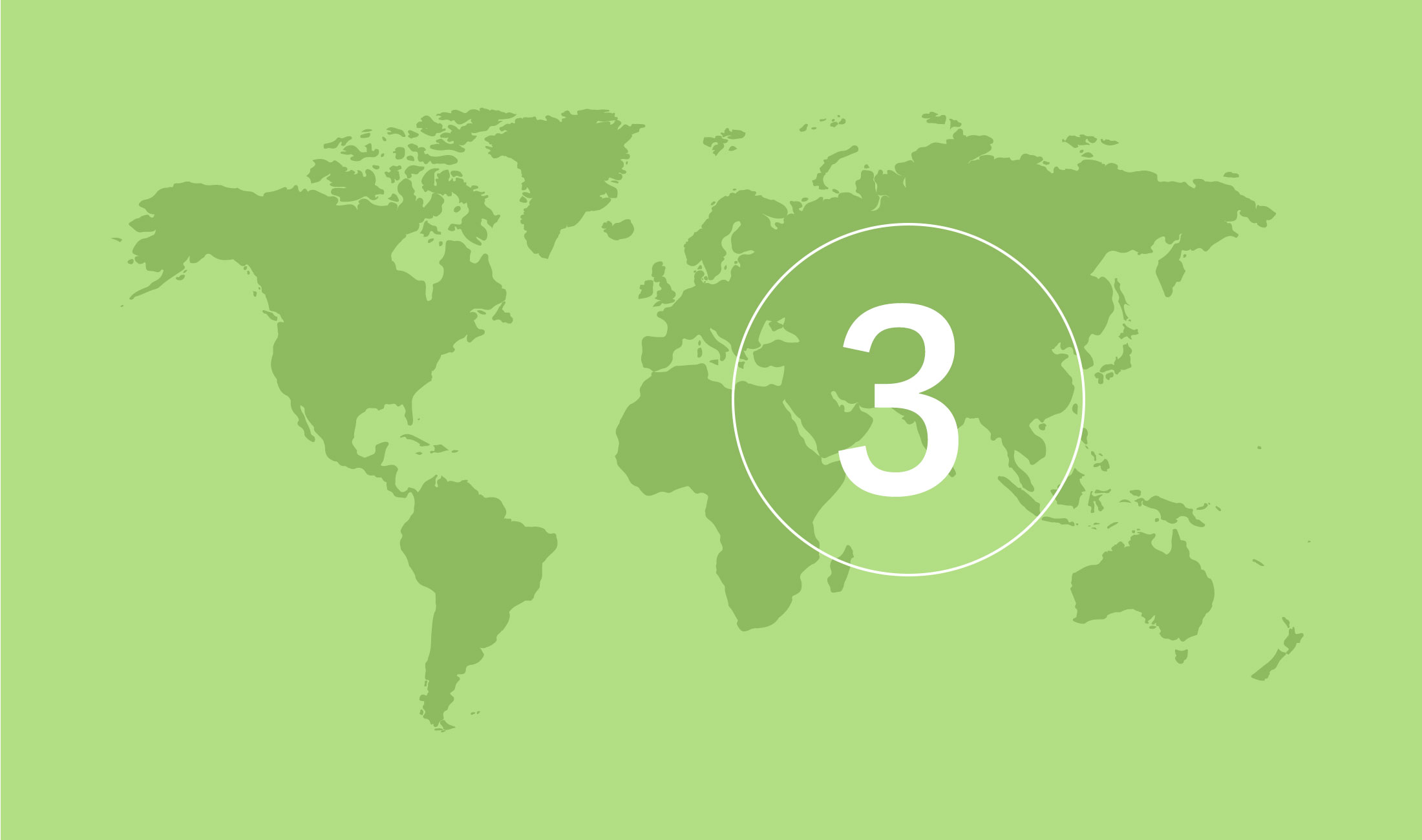
Indonesia
Category
3
- 0
- 1
- 2
- 3
- 4
- 5
- 6
- 7
| Risk type | Short | Long |
|---|---|---|
| Sovereign |

|

|
| Public |

|

|
| Bank |

|

|
| Corporate |

|

|
The icons indicate EKN's risk assessment.

No policy established

Normal risk assessment

Restrictive risk assessment

Normally off cover

OECD or EU countries
Country risk analysis
Country risk analysis archive
Country Risk Analysis of Indonesia
The latest Country Risk Analysis of Indonesia was issued in June 2024.
Robust growth has halved poverty
Indonesia has the world’s 16th largest economy. It is the world’s fourth most populous nation with 275 million inhabitants, 42 per cent of whom are under 25 years of age. Since the fall of the Suharto regime in 1998, the country has made significant democratic gains, with continuous peaceful transitions of power through largely free and fair elections.
Robust economic growth, averaging 5.4 per cent in the decade 2010–2019, has helped to halve the poverty rate in only 20 years and create a growing middle class. The economy is relatively diversified. Growth is largely driven by private consumption (53 per cent of GDP) and a high level of investment. The export sector and manufacturing industry each account for around 20 per cent of GDP.
The country’s abundant natural resources are its largest foreign currency earner, with commodities such as gas, coal, metals, rubber and palm oil accounting for over 55 per cent of exported goods. This exposes the country to external risks associated with commodity price cycles, especially in China, its largest trading partner.
At only 15 per cent of GDP, low government revenue is another vulnerability. Furthermore, shallow markets create temporary dependence on external financing, exposing the economy to shifting global capital flows. Given the importance of fossil fuels to its exports and energy mix, the country faces long-term exposure to transition risks. The agricultural and forestry sectors are also vulnerable to climate change; see the section “Climate risks”.
Growth outlook remains stable
The anticipated average annual growth rate in the period 2024–2026 is 5 per cent, which is in line with the five-year period preceding the pandemic. Inflation has stabilised within the central bank’s target range of 1.5 to 3.5 per cent. Despite this favourable development, in April 2024, the central bank decided to raise interest rates to 6.25 per cent, the highest level since 2016.
This was a response to concerns that an excessive interest rate differential compared to the United States would increase capital outflow, further weakening the country’s currency, the rupiah, which has fallen almost 10 per cent against the US dollar since May 2023. Any cut in interest rates is therefore unlikely before the end of 2024.
Growth strategy unlikely to change
As expected, the current Minster of Defence Prabowo Subianto won the presidential election in February 2024, meaning that Joko Widodo will be leaving office after eight years in power. It is unlikely that the change of president will lead to any major changes in economic policy, at least not in the long term. In the short term, fiscal policy is expected to be somewhat more expansive.
Under outgoing President Widodo, economic policy has focused on increasing the country’s growth potential and creating jobs, something that is likely to continue after the transition of power. Infrastructure expansion is a cornerstone of this growth strategy. High levels of investment are apparent in the transport, energy and housing sectors, as a rising standard of living and a high rate of urbanisation increase the demand for improved infrastructure and more housing.
Another cornerstone is the promotion of a domestic industry that can refine the country’s raw materials before they are exported. The government has advocated for greater investment in processing industries and has imposed export restrictions on a number of metals, including unrefined nickel, bauxite and copper. The new president is expected to continue this policy, which has considerable potential given that Indonesia has one of the world’s largest reserves of nickel, a metal that is used in electric vehicle (EV) batteries.
Growing interest from vehicle manufacturers in China and the West is driving a wave of investment in expanding the smelter capacity that is needed to process the raw nickel. Expansion is also underway in the copper sector, another component of EV batteries. If the country can successfully navigate regulatory and environmental factors, it has the opportunity to establish itself as an industrial hub in the EV value chain. This downstreaming policy increases long-term growth potential and reduces exposure to commodity price cycles.
Sound government finances create resilience
The outgoing government is leaving the country’s finances in a relatively healthy state. Strict post-pandemic fiscal policy has stabilised public debt at a moderate 40 per cent of GDP. At around 39 per cent, the share of government debt denominated in foreign currency is also moderate. During his election campaign, President-elect Subianto argued for both free school lunches and a growth target of 8 per cent.
As such, fiscal policy can be expected to be somewhat more expansive under his rule. Given the relatively low level of tax revenue, public debt can therefore be expected to increase. That said, policy is limited by a statutory deficit ceiling of 3 per cent of GDP. No major current account deficits are expected in the foreseeable future, and the growing export base mitigates the vulnerability of the country’s external position.
The external debt is low, at just under 30 per cent of GDP. In summary, moderate public and external debt, robust international reserves and a large domestic economy help to create resilience to external disruptions.
Business environment
The reform policies of the past decade have contributed to gradual improvements in Indonesia’s performance in indices that measure the country’s business and investment climate. The performance of the country’s economic institutions has improved in the World Bank’s World Governance Indicators (WGIs) in several areas and is now just above average for emerging and developing economies in Asia. However, there is a risk that democratic institutions will be weakened under incoming President Subianto, who comes from a military background and has shown little interest in safeguarding democratic values.
From EKN’s credit-risk perspective, predictability and quality are vital aspects of the business environment in both the regulations that apply to debtors’ businesses and the country’s legal and institutional environment, which affects the position of creditors. According to the WGIs, regulatory quality has improved and is now above average for the region.
Challenges exist in an extensive bureaucracy with partially overlapping regulations, laws and government mandates. Regulations tend to be amended on a regular basis, while decentralisation gives local authorities considerable influence over regulation and oversight.
In terms of the legal environment, the country’s WGI rank is about average for the region. The trend is positive. The legal framework has been updated in recent decades with a lender-friendly bankruptcy law introduced in 2004 and a 1999 law on the use of movable assets as security. However, according to reports, the application of these laws is inconsistent. The efficiency of the judiciary is low, while corruption can affect the predictability of judgments. EKN has limited recent experience of recovering claims in Indonesia.
Corruption presents a challenge, as reflected in Transparency International’s Corruption Perception Index, where the country has slipped from 85th out of 180 countries in 2019 to 115th in 2023. This trend coincided with the pandemic, when the government distributed a great deal of cash support to households and micro-, small and medium-sized enterprises, although some critics argue that legislative amendments in 2019 weakened the government’s Corruption Eradication Commission (KPK) and increased the risk of political interference. Increased digitalisation in areas such as permits, licenses and customs may reduce the scope for corruption in the long term.
One cornerstone of reforming the business environment is the implementation of the Omnibus Law on Job Creation, a major reform package that entered into force in 2023. Among other things, it liberalises foreign direct investment (FDI), simplifies permit applications and reforms corporate taxation and land acquisition.
The package was originally passed in 2020, with several elements already in place; for example, a number of sectors have been opened up to FDI in 2021, and a sovereign wealth fund (the Indonesia Investment Authority) was established, which uses government startup capital to mobilise co-investment in infrastructure, green energy and strategic industries with donors and the private sector. Once the reform has been fully implemented, much will remain to be done in terms of regulation and implementation before a major impact on the business environment can be seen.
EKN’s policy
Since 2012, EKN has classified Indonesia in country risk category 3 on a scale of 0 to 7. Normal risk assessment applies to all debtor categories. This means that there are no predetermined limitations on the issuance of guarantees and that the transactions are assessed on their own merits without any specific
requirements or preconditions.
EKN’s commitment and experience
EKN’s exposure amounts to SEK 2 billion, of which SEK 1.1 billion is in issued guarantees.
Between 2019 and 2023, EKN issued guarantees for 65 transactions to 15 exporting companies at a value of SEK 6 billion. The transaction flow is dominated by transport, construction plant and telecommunications.
Transactions with small and medium-sized exporting companies accounted for just under 1 per cent of guarantees issued. EKN’s payment experience is relatively good with few claims. However, late payments are not uncommon; between 2019 and 2023, late payment was reported for approximately 25 per cent of guarantees.
The average delay in payment was 128 days, a figure that was likely affected by the pandemic. Relatively few transactions have resulted in a loss due to a claim. Over the past 5 years, EKN has settled claims on five transactions, corresponding to slightly more than SEK 21 million. Recovery rates vary but have generally been low.
More for companies that want to export to Indonesia

EKN's guarantees
EKN's guarantees reduce the risk of payment defaults and help banks support businesses. Which guarantee suits your needs?
EKN's guarantees
Guarantee guide
Are you unsure which guarantee is the best fit for your specific transaction? Try our guarantee guide.
Guarantee guide